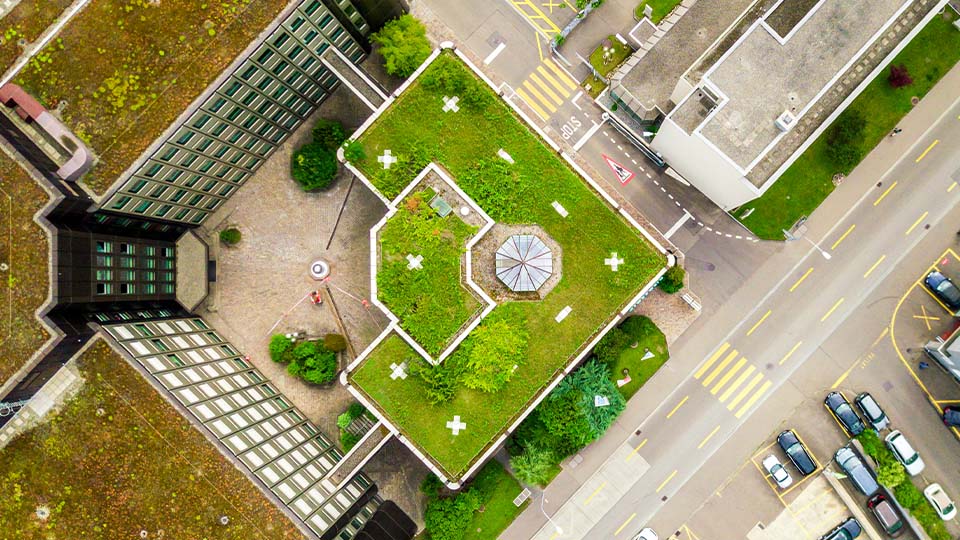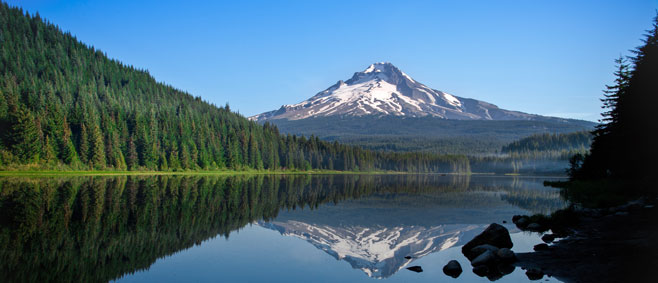Sustainability
Sustainability impacts all aspects of global business, politics, economics and society. This creates a need for leaders with the ability to address issues such as climate change, renewable energy sources, sustainable resource management and the demand for socially and environmentally responsible products and services. Earning a bachelor’s degree in sustainability online from Oregon State University will teach you how to think across disciplines to envision solutions that support the health of natural ecosystems and human communities.
This program is available online as a double degree offering. Current Oregon State students can enroll as an addition to their primary degree program, as it’s designed to complement all OSU bachelor’s programs. It can also be taken as a postbaccalaureate program if you have previously earned a bachelor's degree — allowing you to pair a sustainability degree with a bachelor’s in business, engineering, a natural science or any other field to advance your career and thrive as part of the ongoing transition to a green economy.
Skills you’ll gain in OSU’s online sustainability degree program
As a student in Oregon State’s online sustainability double degree program, you’ll gain the in-demand skills you need to stand out in the job market and level up your career. You’ll learn from expert Oregon State faculty who have real-world experience in the field.
- Human impacts on ecosystems
- Sustainable supply chain management
- Environmental sociology
- Natural resource economics
- Sustainable communities
- Carbon and greenhouse gas management
Program details
Immerse yourself in rich, interdisciplinary coursework that examines modern sustainability issues and provides you with the knowledge to address complex issues in communities and workplaces. You’ll learn about sustainable communities, human impacts on ecosystems, environmental sociology, natural resource economics and more.
The online sustainability program is offered by Oregon State’s College of Agricultural Sciences.
Degree requirements
A minimum of 212 quarter credits are required to earn both the degree in your primary major as well as the double degree in sustainability. Note: If you're pursuing this degree as a postbaccalaureate student and did not previously graduate from Oregon State, you'll be required to take a minimum of 45 credits.
- OSU’s Core Education
- Major requirements: Sustainability

Additional program features
Transfer credits
Some degree requirements may be transferred from other institutions. Please note that a minimum of 45 credits of the last 75 credits in this degree program must be completed at Oregon State (online or on campus) to meet the academic residency requirement.
Previously earned credits must be reviewed upon admittance to OSU for appropriate articulation. Additional information about transferring credits is available through OSU’s Transfer Credit Central.
Pursue an honors degree online
As an undergraduate degree-seeking student, you can apply to earn an honors degree online in your academic major. Earning this prestigious degree gives you the opportunity to collaborate with faculty on research, complete a comprehensive thesis experience and engage in co-curricular activities.
Explore certificates and microcredentials
You can gain highly specialized skills that are in demand by employers — and do it with less of a time and financial commitment — when you earn a certificate or microcredential online with Oregon State. Choose from a large collection of short-form offerings that can help you upskill quickly.
Sustainability careers
The knowledge you acquire in Oregon State’s online sustainability double degree program will help you fill in-demand jobs as part of the green transition in the global marketplace . As a leader in this area, you’ll enter the workforce ready to help organizations become more environmentally responsible while providing insights in sectors that need sustainability experts.
Job market outlook
Use the interactive tool on this page to discover employment trends, top occupations and salary details for professionals who have skills related to sustainability. Please be aware that completing a program related to the job market information shown here does not guarantee employment or a specific salary.
Request
information
To ensure that you receive emails from us, please add "ecampus@oregonstate.edu" and these domains to your safe senders list: “@oregonstate.edu,” “@discover.oregonstate.edu” and “@email.oregonstate.edu.”
† All mobile information you share will remain confidential and will never be given to external sources. Any costs associated with receiving a text message are the responsibility of the individual receiving the message. Opting in to this mobile text messaging service from Ecampus is free of charge, however, message and data rates may apply from your wireless carrier.
Contact
Our enrollment services team can help answer questions about online learning at Oregon State Ecampus and how to get started.
8 a.m-4 p.m. PT Monday-Friday
Contact Ecampus or book an appointment
To ensure that you receive emails from us, please add "ecampus@oregonstate.edu" and these domains to your safe senders list: “@oregonstate.edu,” “@discover.oregonstate.edu” and “@email.oregonstate.edu.”





